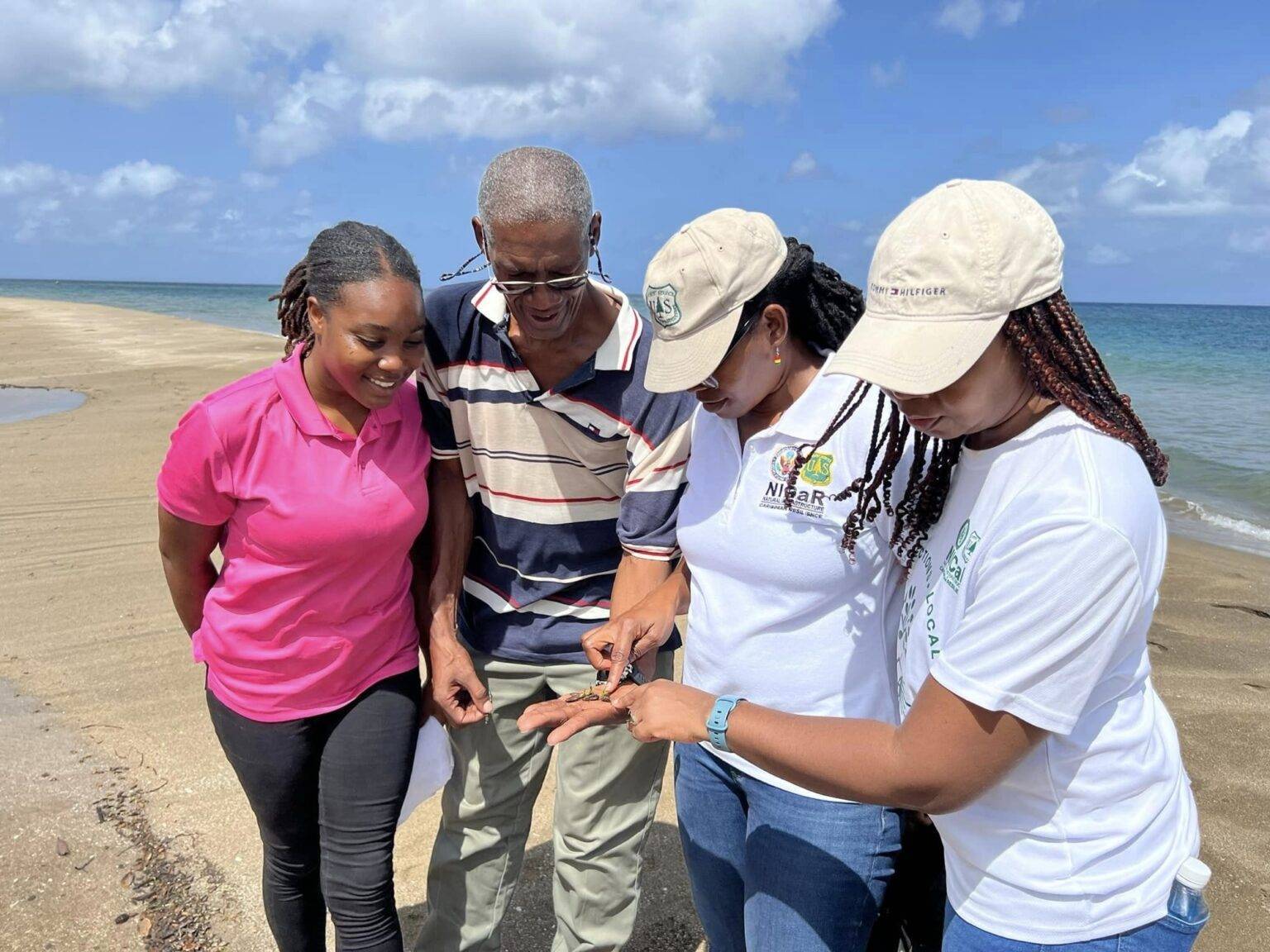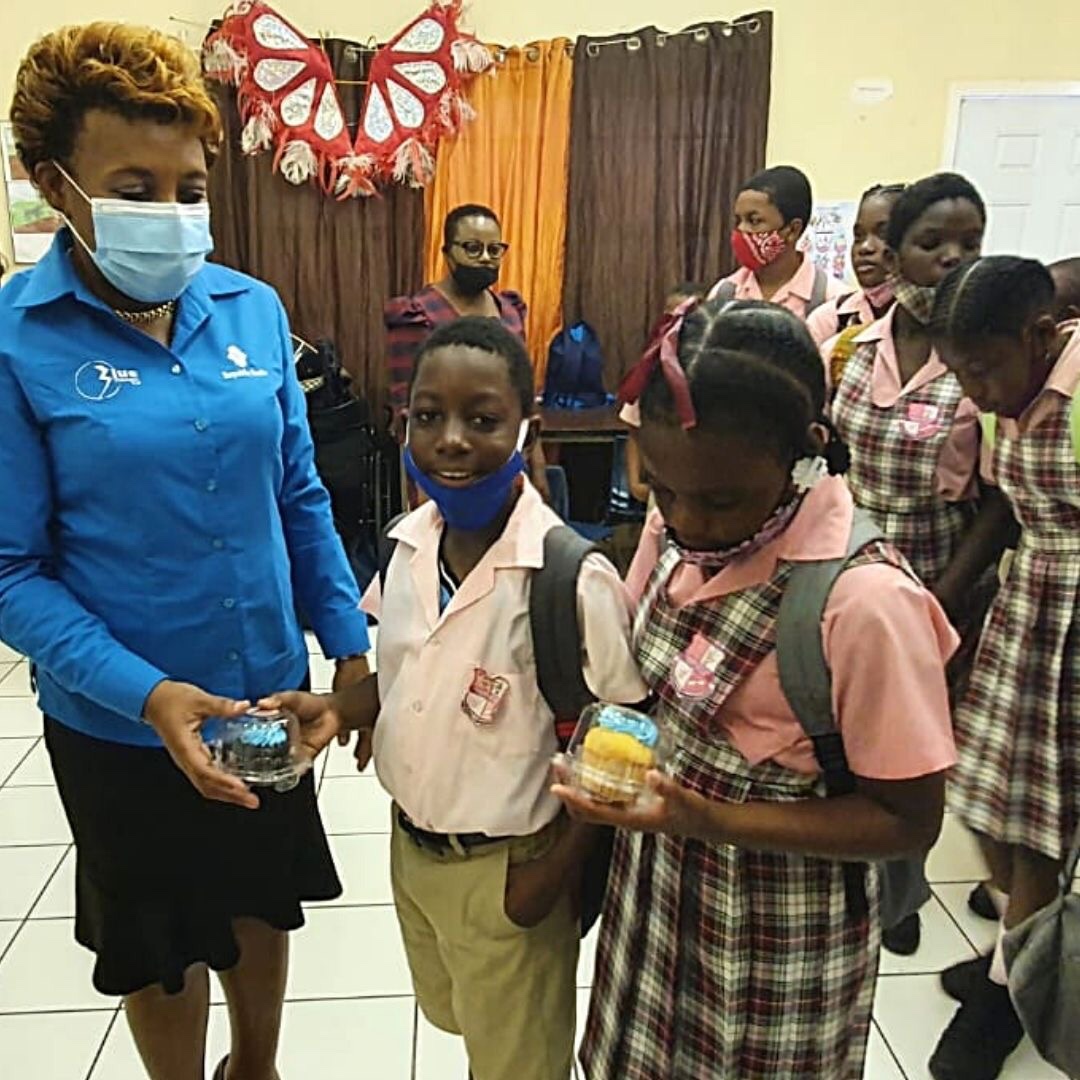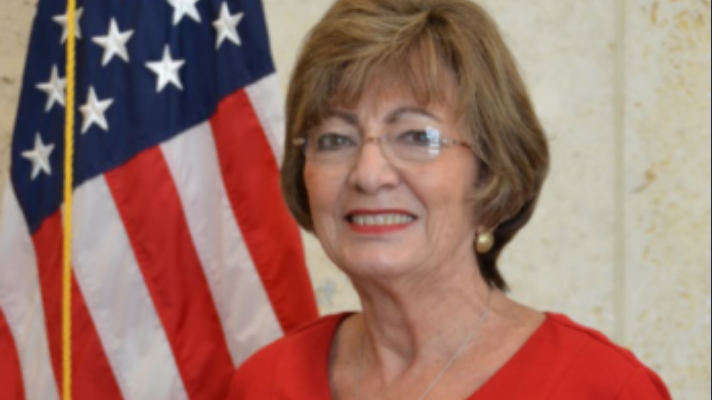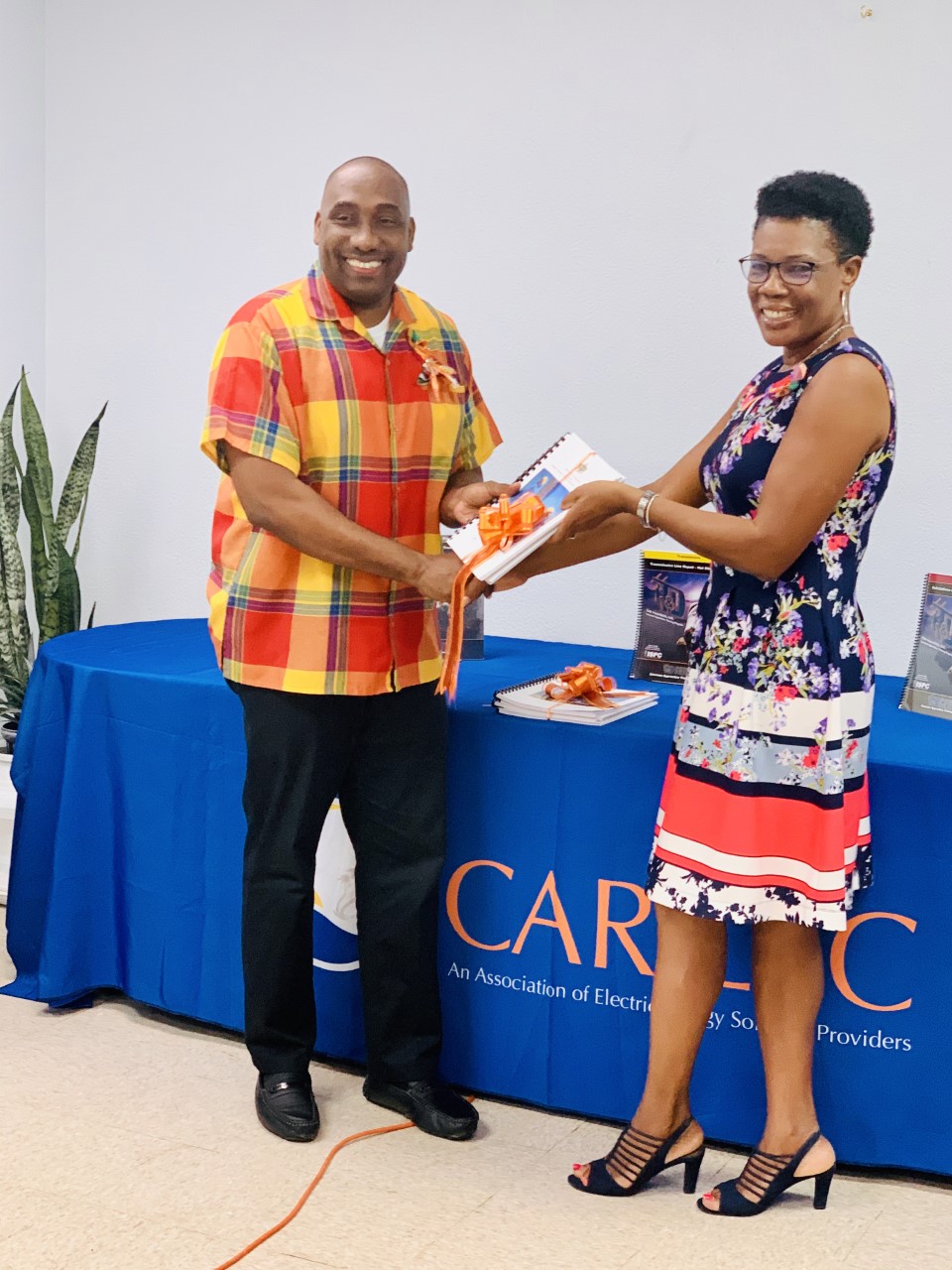Bridgetown, September 26, 2024 – The UnitedStates Forest Service (USFS) has brought to a close, the Natural Infrastructure for Caribbean Resilience (NICaR) Program. The closing ceremony held last week, at the US Embassy in Bridgetown, Barbados, highlighted NICaR’s achievements and regional collaborations to improve long-term climate adaptation and ecosystem resilience in vulnerable communities.
The Nevis Historical and Conservation Society (NHCS) was recognized for their efforts in restoring critical wetland ecosystems. Over the past three years, the NHCS has spearheaded the “Restoration of Nevis Wetlands: Nelson’s Spring and Fort Ashby” project through NICaR support. NHCS has restored several sections across 11 acres of coastal wetland across the two historically significant sites. The project has focused on the removal of invasive species and planting of native wetland flora. One of the key achievements of this initiative has been the establishment of a protective band of mangroves along the coastline. The planting of mangroves will help to reduce coastal erosion, improve biodiversity, and provide a natural barrier against climate impacts.
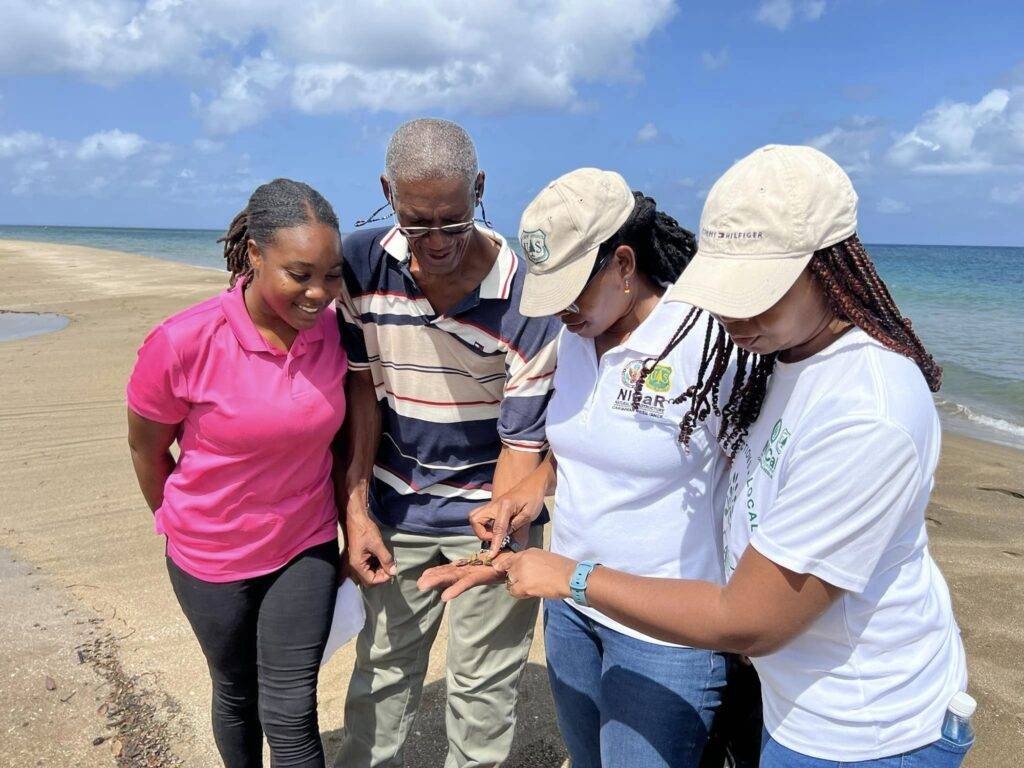
Project Coordinator for the Nevis Historical and Conservation Society, Keithley Amory collects Certificate of Recognition of the organization’s restoration work from US Ambassador to Barbados and the Eastern Caribbean, Roger Nyhus.
The closing event featured testimonials from grantees and program participants and facilitated panel discussions on the ongoing need for regional collaboration in ecosystem protection and climate adaptation.
In speaking at the event, NCHS project coordinator Keithley Amory, emphasised the importance of community support in his contribution. “One of the lessons that have been learnt is community involvement. We are trying to get communities involved in clearing the area and taking ownership of it. It also helps from a government point of view as it is a historical area, so we are looking at financial resilience in terms of developing the area as a sustainable tourism product.” This he cited among the acknowledgement of other challenges with tourism development while maintaining the need to preserve the historical sites and environs.
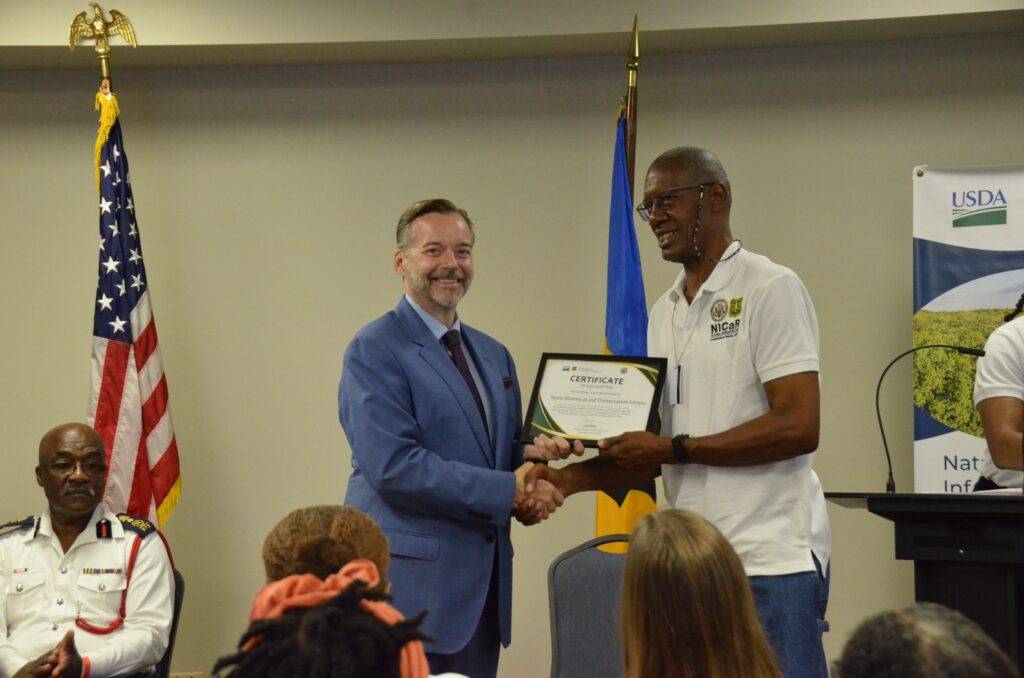
US Ambassador to Barbados, Roger Nyhus with grantees and partners of the Natural Infrastructure for Caribbean Resilience (NICaR) Program. (L-R) Chief Fire Officer of the Barbados Fire Service, Chief Errol Maynard;Grantees: Fondes Amandes Community Restoration Project, Carla Ali; University of the Bahamas, Clare Bowen O’Connor; Nevis Historical & Conservation Society, Keithley Amory; Dominica Red Cross, Sandra Charter-Rolle; Caribbean Natural Resource Institute (CANARI), Anna Cadiz-Hadeed; Jamaica Fire Brigade, District Officer O’Neil Kerr and Barbados Fire Service, Station Officer Damian Bayne (back row).
In July the NICaR team visited Nevis and saw first-hand the challenges and successes with the NHCS-led initiative. The organization has organized cleanup days and other outreach events, raising awareness of the importance of wetland conservation among Nevisians.
The US Ambassador to Barbados and the Eastern Caribbean, Roger Nyhus highlighted the importance of NICaR in addressing regional climate impacts. “The Caribbean is known for its breathtaking natural beauty, but it is also a region that is particularly vulnerable to the impacts of climate change. Rising sea levels, increasingly severe hurricanes, and other extreme weather events pose significant threats to the livelihoods of millions. In this context, the restoration and preservation of natural infrastructure—such as mangroves and forests—are not just environmental imperatives but also critical to the resilience and sustainability of Caribbean communities.”
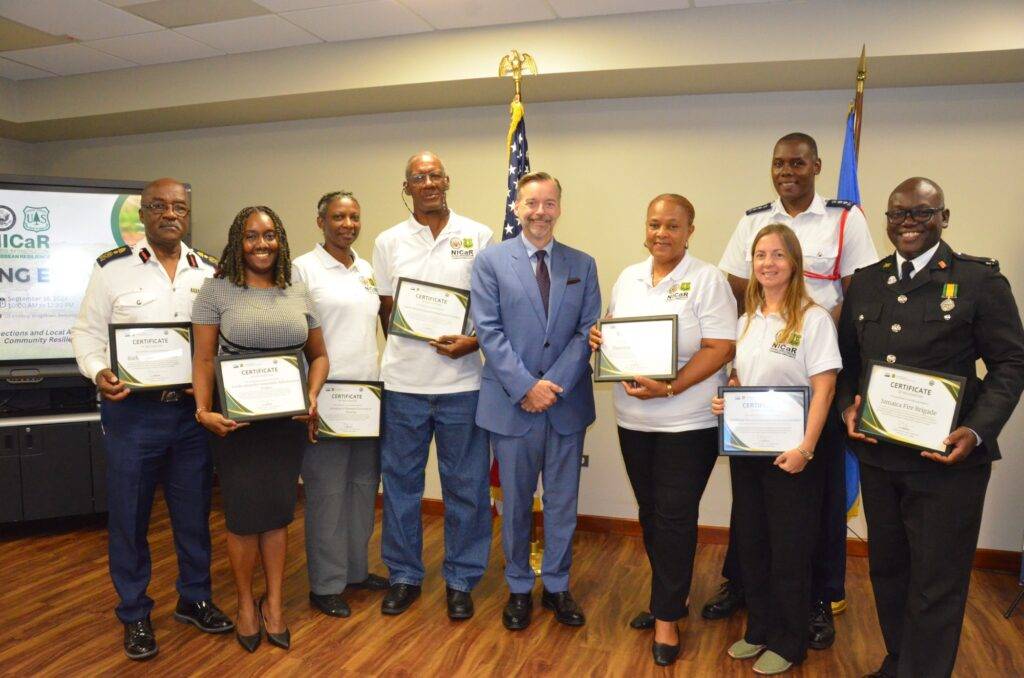
NICaR’s four-year impact in the Caribbean
The Caribbean is facing escalating challenges from climate change, with ecosystems, communities, and economies at increasing risk. Launched in 2020, the NICaR Program implemented 12 projects across nine Caribbean countries. Through collaboration with 14 grantee organizations and other partners, the program has advanced the protection and restoration of about235 hectares or 580 acres of vital mangrove and upland forest ecosystems. NICaR has worked with 38 environment-focused institutions, including community-based organizations and universities in the Caribbean and partner institutions in the United States. Program activities included sharing approaches and solutions in protecting forest ecosystems, preserving biodiversity, advancing restoration efforts and enhancing disaster risk reduction initiatives.
The program has trained over 1200 individuals, including over 700 men and more than 500 women, equipping them with vital skills in areas such as mangrove and riparian restoration, wildland fire management, community engagement and climate change adaptation. The program conducted the first wildland (bush) fire academy, providing targeted training to bolster wildland fire management capacity for national fire services across 12 countries.
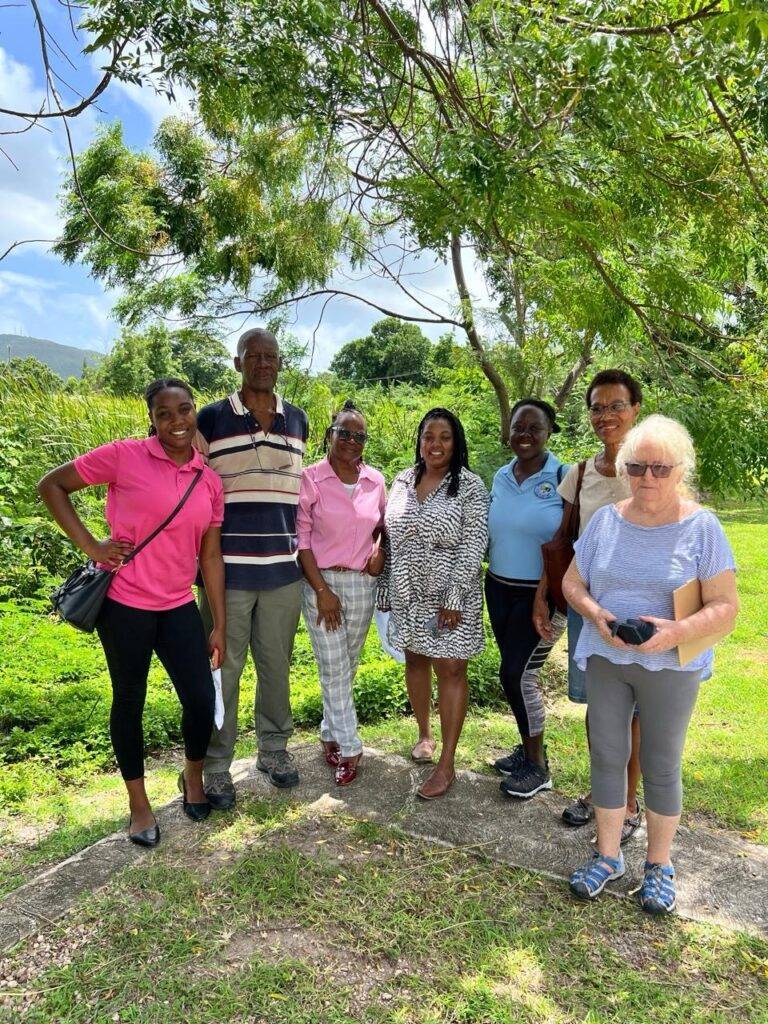
The NICaR grantees are Antigua and Barbuda, Wallings Nature Reserve Inc; The Bahamas – University of the Bahamas/ University of Wyoming, Perry Institute for Marine Science; Dominica – Dominica Red Cross; Dominican Republic –Asociacion para el Desarrollo and Grupo Jarauga; Jamaica – American Bird Conservancy/Jamaica Conservation Development Trust, Central Jamaica Social Development Initiative; St. Kitts & Nevis, Nevis Historical & Conservation Society; St. Vincent & The Grenadines, Richmond Vale Academy; Trinidad and Tobago, Caribbean Natural Resource Institute (CANARI) and sub-grantees in (Dominica, Antigua & Barbuda and Grenada), Fondes Amandes Community Restoration Project.
The NICaR program is implemented by the USDA Forest Service International Programs Office with support from the U.S. Department of State Bureau of Oceans and International Environment and Scientific Affairs. The NICaR program increases the capacity of partner countries to plan, implement, and monitor forest, mangrove, and other land restoration initiatives for improved carbon sequestration and strengthened resilience to climate change and natural disasters through enhanced natural infrastructure.
###

